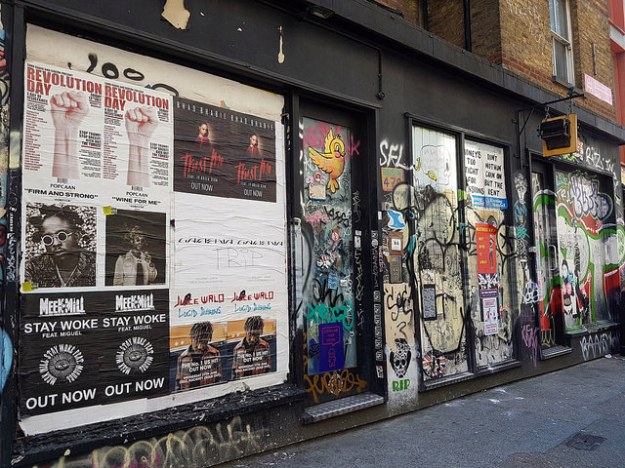
Empty Shops image by Dan Thompson
For the last three years Gavin Chait has been fighting — and winning — multiple Freedom of Information cases to unlock data on vacant properties. In a special guest post ahead of his latest hearing, he explains how he uses a range of evidence to fight a widely misused exemption.
I don’t know how to break this to you, but you’re probably a terrorist.
According to Richard Woolford, Strategic Director of Security and Counter Terrorism with the City of London Corporation, unoccupied properties — and especially unoccupied commercial properties — are attractive for those intent on committing terrorism.
Any knowledge about vacant properties is so dangerous, he believes, that no information about them should be placed in the public domain.
Estate agents against terrorism
This will come as tough news to terrorism enablers, especially real-estate agents, property developers, banks, insurers, and Google Street View.
If you were hoping to find somewhere new to live, or somewhere to open your dream business, then – for the safety of everyone – you’ll need to stay put. Continue reading



